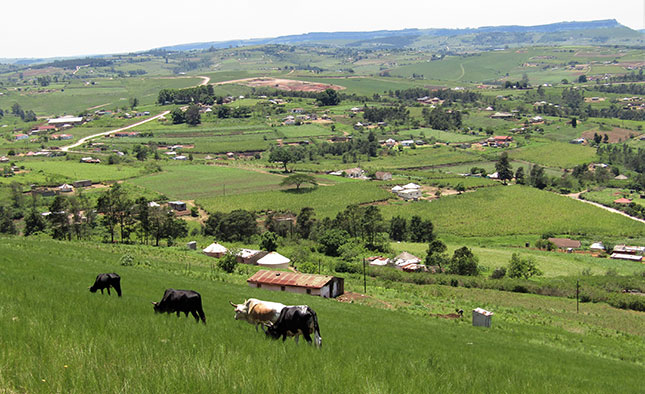
Photo: Lloyd Phillips
A small group of residents of traditional authority lands in KwaZulu-Natal, together with supporting non-governmental organisations, recently jointly submitted an application to the Pietermaritzburg High Court to challenge the Ingonyama Trust Board’s (ITB) decision to make all residents of these lands sign lease agreements.
Farmer’s Weekly previously reported that in 2017, the ITB, which holds and manages approximately 2,8 million hectares of land on behalf of Zulu monarch, King Goodwill Zwelithini, began requiring the land’s 5,2 million or so residents to begin converting their customary and often rent-free Permission to Occupy (PTO) status into long-term lease agreements that now demand rent payments from these residents.
READ How traditional leaders undermine women’s land rights
A recent joint statement by the Legal Resources Centre (LRC) and the Council for the Advancement of the South African Constitution (CASAC) said that residents of Ingonyama Trust lands were allegedly not informed that, by signing leases, they were “watering down their existing land rights” or that it “was possible to upgrade their PTOs to title deeds in terms of the Upgrading of Land Tenure Rights Act (ULTRA)”.
The LRC represented the seven individuals, CASAC and the Rural Women’s Movement who are jointly challenging the ITB.
On behalf of its clients in this matter, the LRC argued that the ITB’s conduct in “inducing rights-holders to enter such leases is unlawful”.
Reasons given for this by the LRC include that the ITB is variously undermining and breaching provisions of the Constitution, the Interim Protection of Informal Land Rights Act 31 of 1996, the Ingonyama Trust Act, and the ULTRA.
In their application to the Pietermaritzburg High Court, the LRC’s clients have sought to have existing and/or potential lease agreements between customary residents of Ingonyama Trust lands and the ITB declared unlawful and invalid.
They are also seeking to have the ITB ordered to refund all monies already paid by these customary residents in terms of the lease agreements.
The applicants have also submitted to the Pietermaritzburg High Court that Minister of Agriculture, Rural Development and Land Reform, Thoko Didiza, has failed in her various duties to ensure that the land rights of customary residents of Ingonyama Trust lands are protected and achieved.
They have requested the court to direct Didiza to effectively and timeously uphold and implement these rights.
“The people affected by the [ITB’s] decision to cancel PTOs and to conclude lease agreements include some of the poorest communities in South Africa. The [ITB’s] lease agreements require them to pay rent for land that their families have occupied for generations. A favourable judgment in this case will restore informal and customary ownership rights to land and ensure the security of tenure for people living on Ingonyama Trust land,” the LRC’s and CASAC’s joint statement said.
Farmer’s Weekly’s attempts to obtain comment from the ITB were unsuccessful by the time of publishing.
The joint statement said that the Pietermaritzburg High Court had reserved its judgement on the application to a later date.












